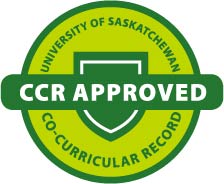D.O.A.'s "General Strike" and the Politics of Punk Rock in Late Twentieth-Century British Columbia
DOI:
https://doi.org/10.32396/usurj.v2i1.152Keywords:
British Columbia, punk rock, social activism, Canadian pop culture, labour movementAbstract
Within the realm of punk music, little attention has been paid the musical and cultural movement of political punk rock within the Canadian context. The Vancouver-based punk band D.O.A. has achieved recognition within the punk community both for their music, their political consciousness, and for their role in labour activism in the 1980s. Their 1983 song “General Strike” was written about, and produced as a benefit for, a group of leftists in British Columbia known as the Solidarity Movement, who were fighting against the provincial Social Credit Government headed by Premier Bill Bennett. Using the theoretical framework of Simon Frith’s “Towards and Aesthetic of Popular Music,” this essay analyzes the way in which punk music and leftist politics intersected during the 1983 Solidarity Protests and how D.O.A. contributed to the construction of a unified communal identity among protestors. Furthermore, in exploring mainstream and underground media coverage surrounding D.O.A and the Solidarity Movement, this essay examines the way in which the political events of 1983 have been viewed in years since and have become part of a national political narrative.
Downloads
Published
Issue
Section
License
Articles: USURJ’s current Publication Agreements apply a Creative Commons Attribution-NonCommercial License (CC-BY-NC) by default. The CC BY-NC license lets others remix, tweak, and build upon work non-commercially. The author(s) can choose a different CC license, as outlined in https://creativecommons.org/about/cclicenses/. Please see the PDF for each article to determine what license is applied to that article. Author(s) can also request to reserve all copyright (All Rights Reserved). If there is no indication for articles published before September 2020, assume the author retains all rights beyond those necessary for publication by USURJ. All articles published after September 2020 will apply one of the aforementioned CC licenses. See the Publication Agreement under the Submission Preparation Checklist or Author Guidelines for more information. Artwork: All copyright for the original artwork remains with the artist unless they wish to apply a Creative Commons (CC) license to the artwork. Please see the PDF for each artwork to determine what license is applied to that artwork.







